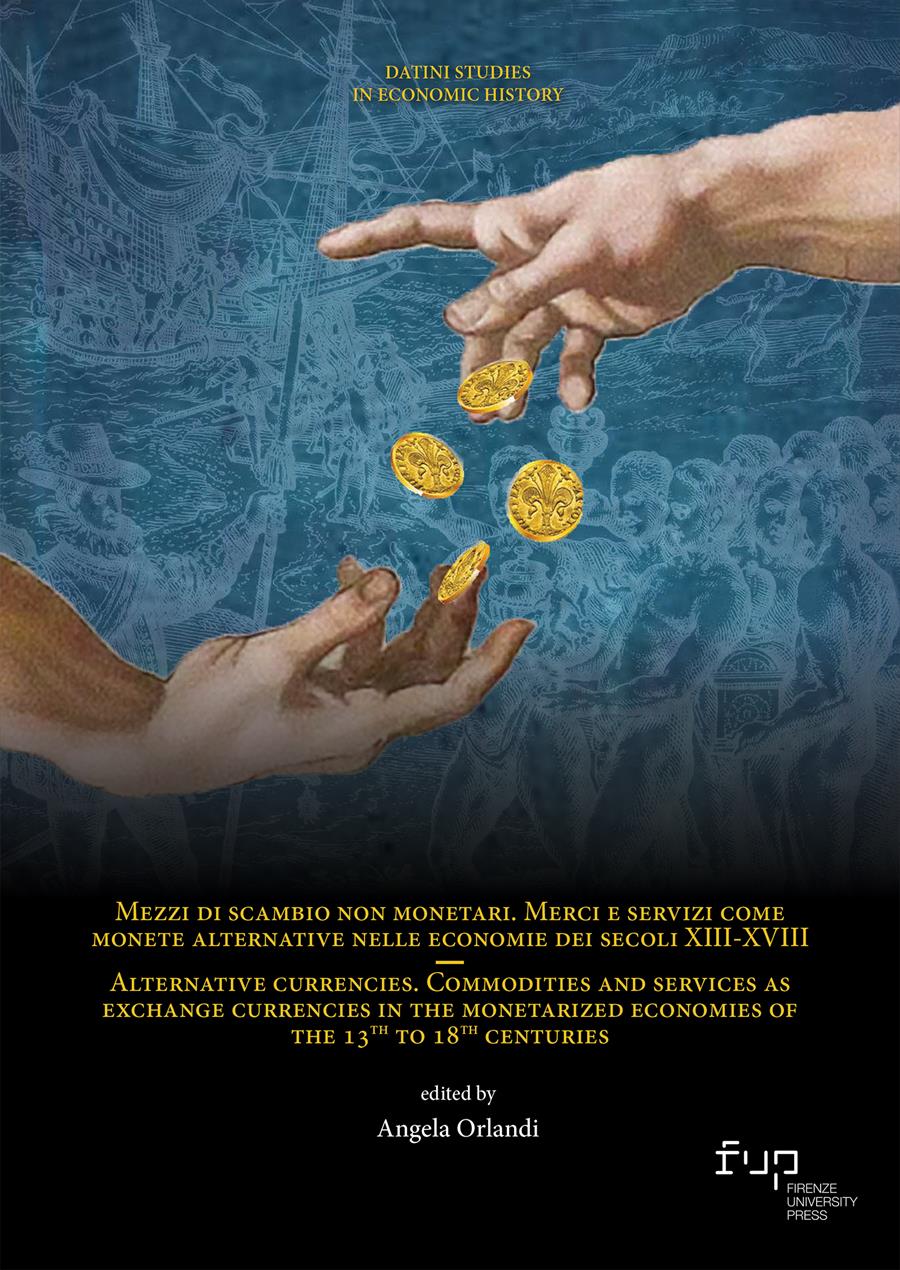Tavola rotonda
- Philippe Bernardi
- © 2024 Author(s) |
- CC BY 4.0
- DOI: 10.36253/979-12-215-0347-0.32
This round-table discussion focuses on two major aspects of the use of alternative currencies. The first is the role of negotiation. The complexity of valuation in exchanges in kind has been widely highlighted. However, it is important to emphasise the relative subjectivity of this operation which, despite the explicit reference to the market price, retains a cultural dimension. This observation means that we must not overlook the individual or category dimension of the transaction, which can tip the exchange in favour of one or other of the parties, resulting in a form of dependency. The second component is mistrust. Distrust appears to develop on the soil of the abuses observed. The fear or feeling of being duped. The vocabulary bears witness to this, but not without revealing a certain ambiguity in ancient societies with regard to bartering, which invites us to look beyond the negative value of the vocabulary and consider the bias that may be introduced by contractual sources that mainly bring together strangers.
- Keywords:
- Distrust,
- negotiation,
- vocabulary,
- dependence,
- culture,
Panthéon-Sorbonne Paris 1 University, France - ORCID: 0000-0001-5615-7849
- Furetière, Antoine. 1701. Dictionnaire universel, contenant généralement tous les mots françois tant vieux que modernes, les termes des sciences et des arts,... La Haye-Rotterdam: Arnoud et Rienier Leers.
- Godefroy, Frédéric. 1881. Dictionnaire de l'ancienne langue française et de tous ses dialectes du IXe au XVe siècle. Paris: F. Vieweg.
- Littré, Emile. 1863-1872. Dictionnaire de la langue française. Paris: Hachette.
- Polanyi, Karl. 1967 (1944). The Great Transformation. Boston: Beacon Press.
Chapter Information
Chapter Title
Tavola rotonda
Authors
Philippe Bernardi
Language
French
DOI
10.36253/979-12-215-0347-0.32
Peer Reviewed
Publication Year
2024
Copyright Information
© 2024 Author(s)
Content License
Metadata License
Bibliographic Information
Book Title
Mezzi di scambio non monetari. Merci e servizi come monete alternative nelle economie dei secoli XIII-XVIII / Alternative currencies. Commodities and services as exchange currencies in the monetarized economies of the 13th to 18th centuries
Editors
Angela Orlandi
Peer Reviewed
Number of Pages
592
Publication Year
2024
Copyright Information
© 2024 Author(s)
Content License
Metadata License
Publisher Name
Firenze University Press
DOI
10.36253/979-12-215-0347-0
ISBN Print
979-12-215-0346-3
eISBN (pdf)
979-12-215-0347-0
eISBN (xml)
979-12-215-0348-7
Series Title
Datini Studies in Economic History
Series ISSN
2975-1241
Series E-ISSN
2975-1195
